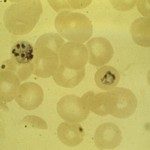Lien vers Pubmed [PMID] – 38443279
Lien DOI – 10.1016/j.tim.2024.02.009
Trends Microbiol 2024 Mar; ():
Many pathogens are hard to eradicate, even in the absence of genetically detectable antimicrobial resistance mechanisms and despite proven antibiotic susceptibility. The fraction of clonal bacteria that temporarily elude effective antibiotic treatments is commonly known as ‘antibiotic persisters.’ Over the past decade, there has been a growing body of research highlighting the pivotal role played by the cellular host in the development of persisters. In parallel, this research has also sought to elucidate the molecular mechanisms underlying the formation of intracellular antibiotic persisters and has demonstrated a prominent role for the bacterial stress response. However, questions remain regarding the conditions leading to the formation of stress-induced persisters among a clonal population of intracellular bacteria and despite an ostensibly uniform environment. In this opinion, following a brief review of the current state of knowledge regarding intracellular antibiotic persisters, we explore the ways in which macrophage functional heterogeneity and bacterial phenotypic heterogeneity may contribute to the emergence of these persisters. We propose that the degree of mismatch between the macrophage permissiveness and the bacterial preparedness to invade and thrive intracellularly may explain the formation of stress-induced nonreplicating intracellular persisters.

